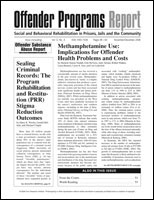From the Courts
Author: Margaret R. Moreland, J.D., M.S.L.S. .
Source: Volume 19, Number 02, July/August 2015 , pp.19-21(3)

< previous article |next article > |return to table of contents
Abstract:
The Supreme Court recently handed down a unanimous decision in Holt v. Hobbs that ruled that a regulation of the Arkansas Department of Correction banning beards of any length infringed on the religious freedom of Muslim inmates (and potentially others whose religious beliefs mandate beards) in a case brought on claims under “RLUIPA” (the Religious Land Use and Institutionalized Persons Act of 2000). The opinion by Justice Alito and a concurring opinion by Justice Sotomayor suggest that the Supreme Court may be moving in a direction that accords less deference to prison administrators than the nearly blanket protections correctional agencies have enjoyed in cases over the last twenty-five years. In another important case summarized in this issue’s “From the Courts” column, The U.S. Court of Appeals for the Sixth Circuit rejected an inmate’s claim that because a trial judge had suggested in his sentencing statement that a prison term might benefit a repeat offender his sentence had been prolonged in order to enable the inmate to undergo and complete treatment, which would violate a right first articulated in the Supreme Court ruling in “Tapia” that “A court may not impose or lengthen a prison sentence to enable an offender to complete a treatment program or otherwise to promote rehabilitation.” No “Tapia” violation was found in referencing treatment during sentencing.Keywords: Holt v. Hobbs , No. 13–6827, ___ S. Ct.___; Tapia v. United States; United States v. Green , 2014 U.S. App.
Affiliations:
1: Pace University School of Law.